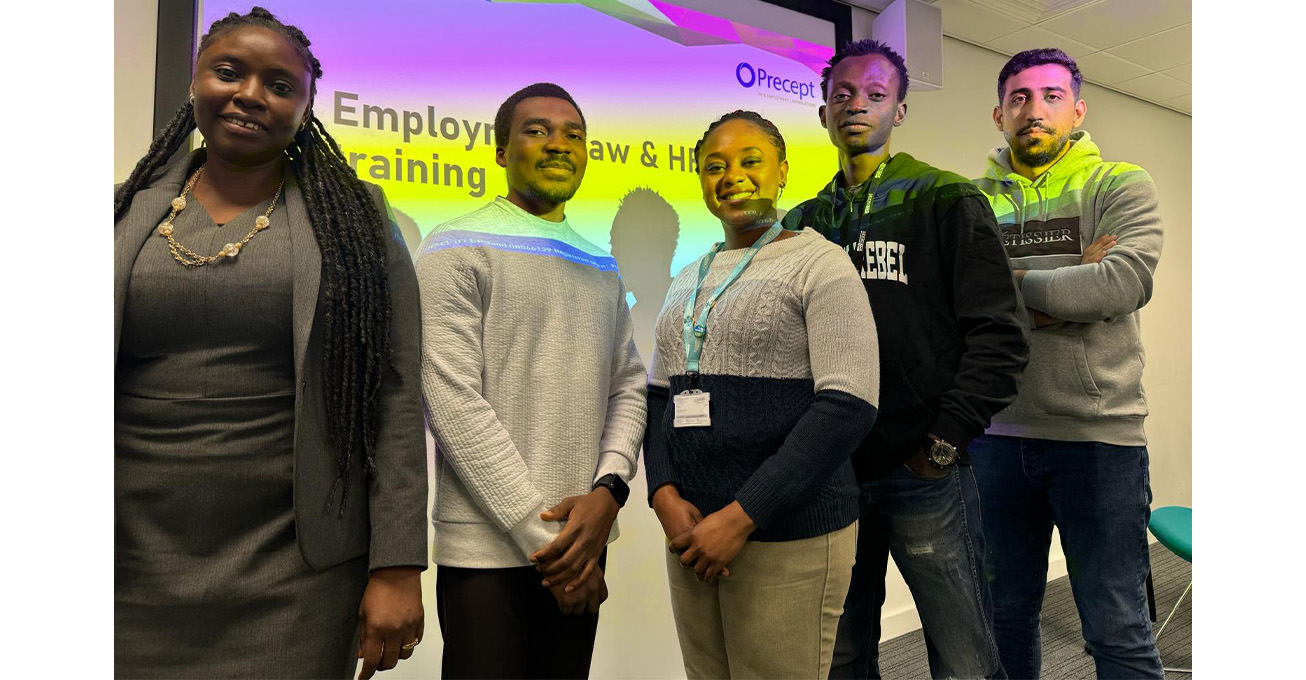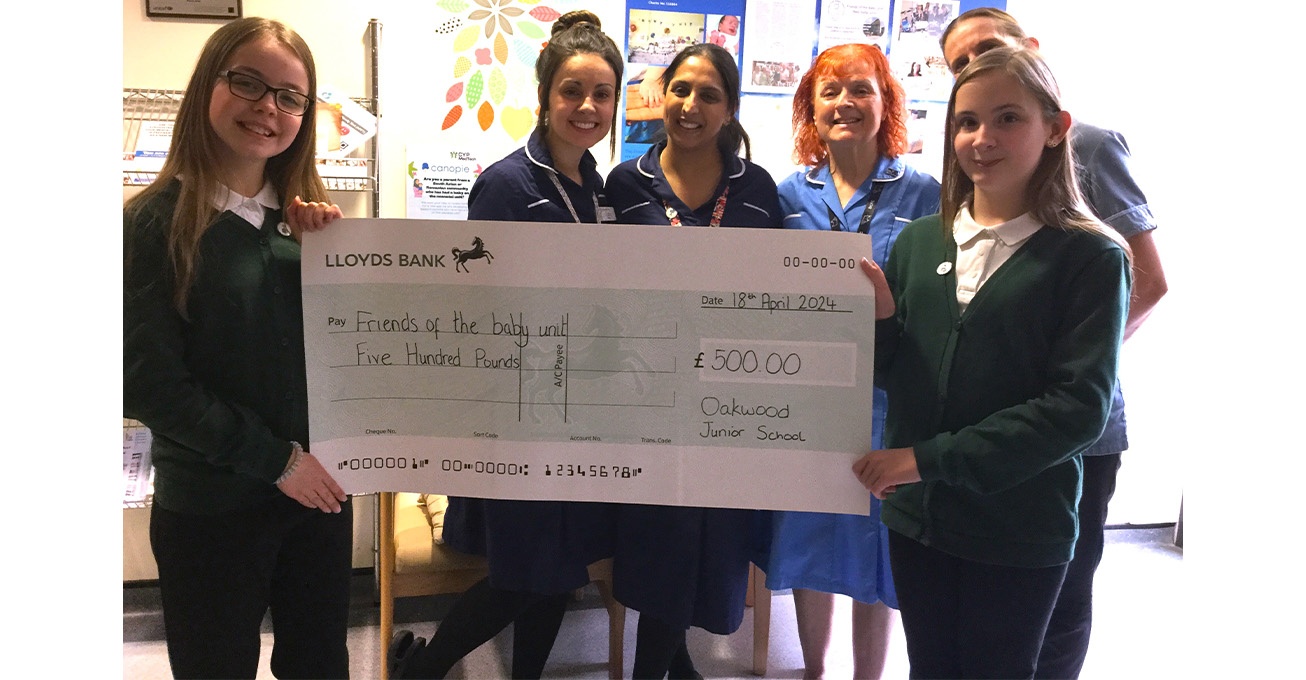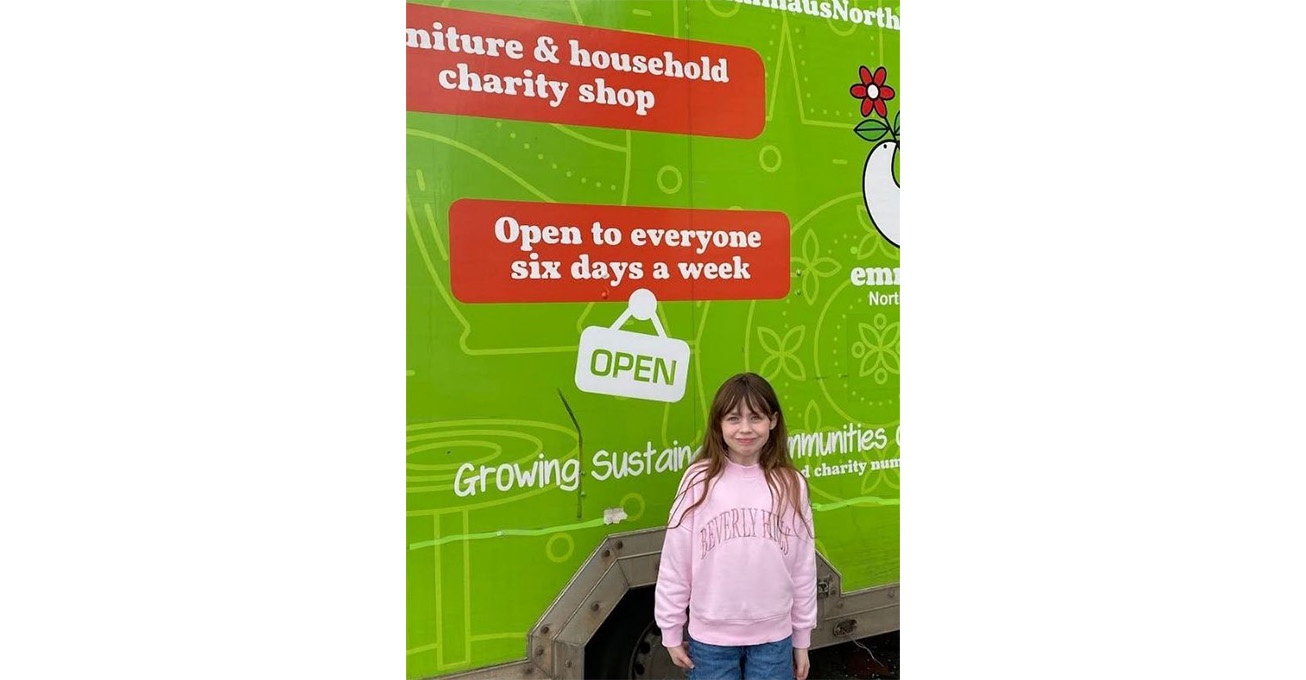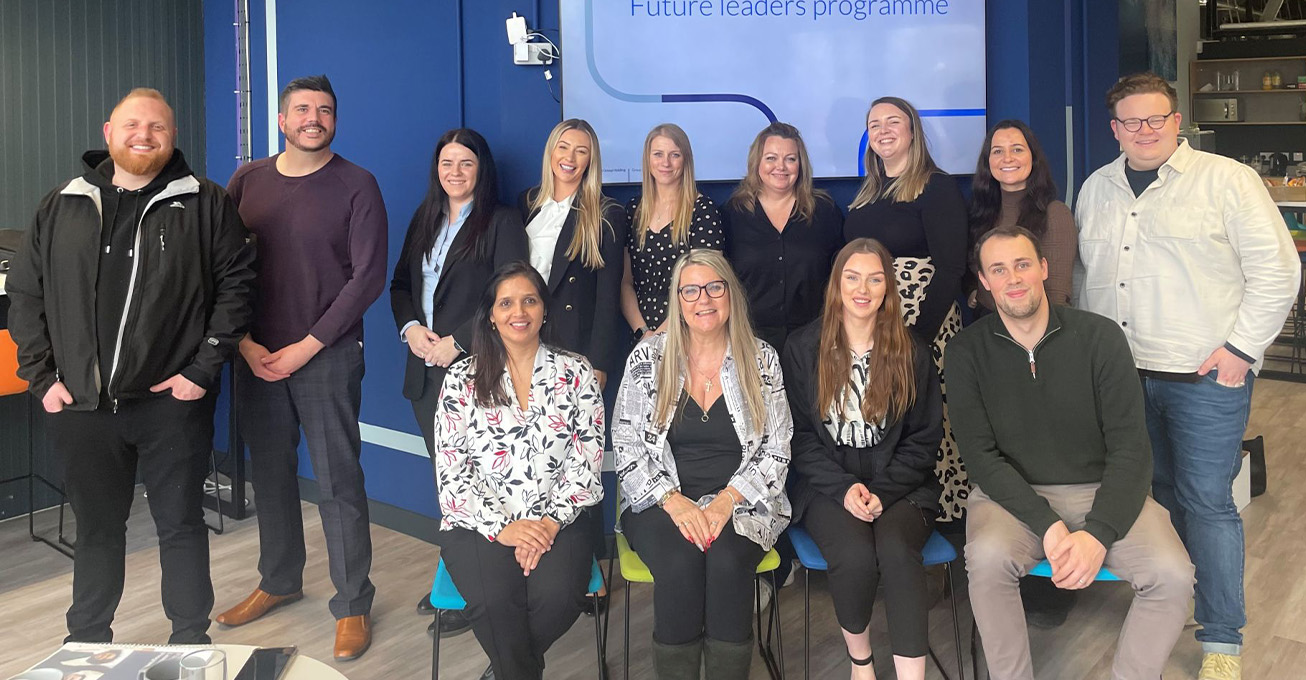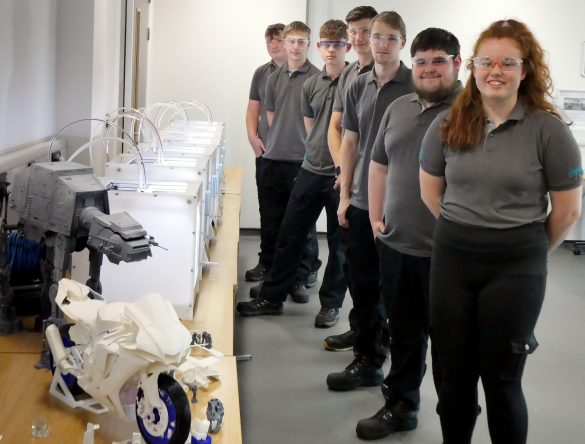 Eight ambitious MTC learners demonstrate their additive manufacturing know-how.
Eight ambitious MTC learners demonstrate their additive manufacturing know-how.
Aspiring engineers based at the Oxfordshire Advanced Skills (OAS) training centre in Abingdon are celebrating success in reaching the National Qualifier stage of a WorldSkills UK competition.
The apprentices are working with the OAS training provider, MTC Training. Learners battled it out in the first stage of online testing, which examined their additive manufacturing knowledge.
The challenge aims to inspire learners through competition-based training, with a focus on the essential skills needed for a successful career in additive manufacturing, asking participants to showcase their skills in computer-aided design software design, fused deposition modelling, 3D printing and 3D scanning. It also assesses their competency-based skills developed on level 3 hi-tech programmes, such as numeracy, technical knowledge, problem-solving, attention to detail and communication.
Jakub Strzelczyk, Myles Crossland, Thomas Greenaway and Hayden Lacey from the Science and Technology Facilities Council (STFC), Luke Speckles and Laurie Husband from the UK Atomic Energy Authority, Holly Stowell from Reaction Engines and Ben Hibberd from Element 6 proved they had what it takes to secure a place in the National Qualifiers.
Ben Hibberd, an OAS apprentice, said he was delighted to have proved his new skills to the judges and make it through to the National Qualifiers.
“When the idea of competing was presented to me, I agreed, thinking it would be an interesting experience, never expecting to make it through. Now I’m competing with some of the best and working hard to develop my skills, it’s already a very memorable experience,” he said.
OAS head of finance and operations, Emma Johnstone, said she has seen the competition bring out the best in the apprentices.
“We have built an effective system for our learners here at OAS, which includes a plethora of extra enrichment activities, in addition to the programme curriculum which builds their foundational skills in engineering and advanced manufacturing. Competitions like this support the technical knowledge, ensuring the new employees are ready to deliver the knowledge when they go to work for their employers in the second year of their apprenticeship, but they also develop the softer skills that allows them to do the job well,” she said.
The National Qualifiers challenge the competitors with reverse engineering and the printing of a part using fused filament fabrication technology. If successful at the Qualifiers, the apprentices will go on to compete in the National Final, which will see them put their problem-solving skills to the test again through a series of challenges over two days, including obtaining broken part data using a scanner and repairing a broken element of a scanned part file.


